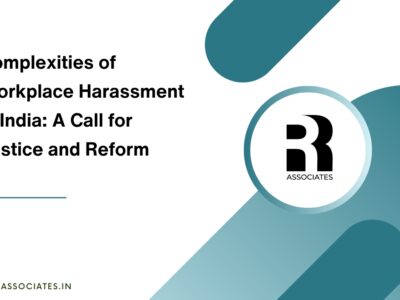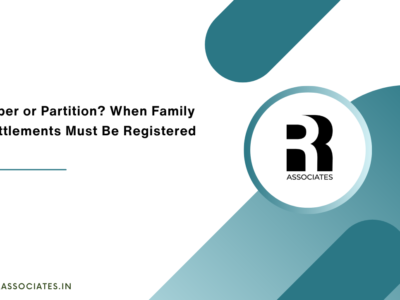
Electronic Service of Summons under CPC: Evolving Practices and Legal Validity Post COVID-19
The COVID‑19 pandemic accelerated a paradigm shift in judicial procedures across India, compelling courts to embrace electronic service of summons and legal notices. Under Order V of the Code of Civil Procedure (CPC), courts are empowered to direct alternative modes of service—such as e‑mail and WhatsApp—particularly when conventional methods are impractical, inefficient, or obstructed. This article examines the e‑service framework under Order V CPC, key Supreme Court and High Court decisions, SC guidelines during and post-COVID, and Delhi‑specific developments including the new Delhi BNSS (Service of Summons) Rules, 2025, while integrating semantic SEO elements like “electronic summons in Delhi” and “CPC Order V e‑service.”
Legal Framework under Order V CPC: Traditional vs. Electronic Modes
Order V of the Code of Civil Procedure, 1908, read with relevant High Court Rules, governs the issuance and service of summons in civil cases. Traditionally, service was effected through personal delivery by court officers, registered post, or substituted service via publication. However, the amendments post-2002 and judicial directions post-2020 have recognized electronic service of summons as a valid alternative.
Rule 9 and Rule 9A of Order V CPC
- Rule 9 allows service by registered post, speed post, courier service, or other means as the court deems fit.
- Rule 9A empowers the plaintiff to serve summons, subject to court supervision.
In the evolving context, courts have interpreted “other means” to include e-mail service of summons and WhatsApp legal notices, particularly in commercial disputes under the Commercial Courts Act, 2015, and now increasingly in regular civil litigation.
Courts in Delhi have adopted a progressive view by routinely allowing WhatsApp service of legal notices and e‑mails with read receipts as valid, especially where defendants evade traditional service or during periods of restricted physical movement.
Judicial Recognition of E‑Summons: Supreme Court and High Courts’ Stand
The Supreme Court of India, in the landmark case of In Re: Cognizance for Extension of Limitation (2020 SCC OnLine SC 343), paved the way for electronic service of summons in response to pandemic-related disruptions. The Court held that service of summons and notices may be effected via e-mail, fax, and instant messaging platforms like WhatsApp, provided there is reliable delivery confirmation.
In this ruling and its subsequent orders, the Supreme Court recognized that:
- Read receipts (✓✓ blue ticks) on WhatsApp can be treated as prima facie proof of service.
- Courts must allow flexibility in modes of service to ensure access to justice.
Further, in Kross Television India Pvt. Ltd. v. Vikhyat Chitra Production, the Bombay High Court upheld WhatsApp as a valid mode of service when accompanied by delivery/read receipts, emphasizing “proof of dispatch and proof of receipt.”
The Delhi High Court in Bright Enterprises Pvt. Ltd. v. MJ Bizcraft LLP (2020) also observed that where defendants habitually avoid physical summons, electronic service becomes not just convenient but necessary.
Thus, Delhi courts are now proactively directing hybrid service—combining physical and electronic modes—to avoid undue delays.
Procedural Guidelines: E‑Service Protocols and Legal Safeguards
While the judiciary has accepted electronic service of summons, courts emphasize procedural safeguards to ensure due process and legal validity. The following protocols are now typically followed in courts, especially in jurisdictions like Delhi:
1. Proof of Delivery
The party effecting e‑service must provide:
- Affidavit of service, stating date, time, and mode of service;
- Screenshots or printouts showing delivery/read receipts;
- Server-generated e-mail delivery confirmations.
2. Multiple Modes of Service
To avoid disputes over the validity of service, courts often direct simultaneous service via:
- E‑mail (to registered or known addresses);
- WhatsApp (with mobile number affidavit);
- Physical registered post (where feasible).
3. Court-Approved Channels
Where e-filing portals are in use (like in Delhi District Courts and Delhi High Court), notices and summons are sent through official, authenticated court platforms.
4. Restrictions
Electronic service may not be permitted:
- Where the identity of the recipient is uncertain;
- In cases involving illiterate or tech-unfamiliar defendants;
- In criminal matters, unless allowed by special enactment.
These safeguards balance expeditious disposal of cases with the principles of natural justice.
E-Service in Delhi: Practice Directions and Judicial Trends
In Delhi, the push toward digitisation of judicial processes—further hastened by the pandemic—has led to a formalised and court-monitored system for electronic service of summons and notices.
1. Delhi High Court Practice Directions
The Delhi High Court has issued several practice directions post-2020 to standardise service via email and messaging platforms, especially under:
- Commercial Courts Act, 2015, where service of summons is time-bound (Order V CPC read with Rule 3 of the Commercial Courts (Procedure) Rules, 2018);
- Order XXXIX Rule 3 CPC, where interim injunctions require immediate service on the opposite party.
Courts permit plaintiffs to serve:
- PDFs of the plaint, documents, and interim orders by e-mail and WhatsApp;
- With proof of delivery appended with the next filing.
2. Use of E-filing Platforms
Both Delhi District Courts and the Delhi High Court now mandate that the filing parties upload e-mail addresses and mobile numbers of the parties at the time of institution. These databases are used to effect e-summons via automated systems, ensuring:
- Speedy issuance;
- Reduction in adjournments due to non-service.
3. Latest Trends and Innovations
- Courts now sometimes issue summons directly to counsel via e-mail with instructions to ensure client delivery.
- Use of QR code-enabled summons is being piloted for authentication.
Conclusion
The evolution of electronic service of summons under Order V CPC represents a significant stride towards a technology‑enabled and efficient justice delivery system in India. The COVID‑19 pandemic merely accelerated a transformation that was long overdue—minimising delays, ensuring timely communication of legal proceedings, and reducing the burden on court staff.
While courts—especially in Delhi—have shown commendable adaptability in permitting e‑mail and WhatsApp summons, the long-term success of this model hinges on:
- Legislative backing with clear procedural rules;
- Widespread judicial training and litigant awareness;
- Digital safeguards against misuse or denial of service.
With ongoing digitisation efforts and judicial endorsement, e‑summons is poised to become the default mode of service, especially in commercial, civil, and urgent litigation.
Delhi, as a leading jurisdiction, offers a model for integrating electronic legal service with robust procedural safeguards, balancing speed with fairness. Continued collaboration between the bar, bench, and technology providers is crucial to sustain this progress.
FAQs
1. Is service of summons via WhatsApp legally valid in India?
Yes. Courts, including the Supreme Court and Delhi High Court, have held that WhatsApp service is valid if delivery and read receipts (✓✓) are produced as proof.
2. Can I serve a legal notice or summons by email in a civil case in Delhi?
Yes. Delhi courts allow email service of summons and legal notices, especially in commercial disputes, provided you file an affidavit of service with delivery confirmation.
3. What are the requirements to prove electronic service of summons in court?
You must submit:
- Affidavit of service,
- Screenshots or delivery receipts, and
- Printouts of emails/WhatsApp messages showing date and time of receipt.
4. Does Order V CPC mention WhatsApp or electronic service specifically?
Order V CPC does not mention WhatsApp or email explicitly, but courts interpret “other means” of service in Rule 9 and Rule 9A to include electronic modes, based on practicality and case urgency.
5. Is electronic service of summons allowed in all types of cases?
No. While widely accepted in civil and commercial matters, e-service may not be permitted in:
- Criminal trials,
- Cases involving non-tech-savvy defendants, or
- Where personal identity of recipient is disputed.




